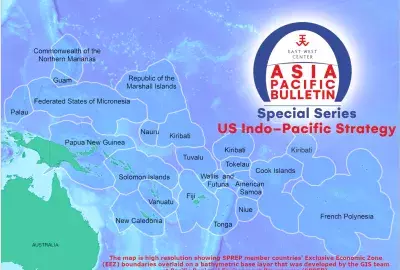Error message

|
John Hemmings and James Rogers explain that “Japan and the UK have been moving closer together for over a decade, and not only in the diplomaticeconomic sphere.” |
In January 2019, amidst all the Brexit-related commotion and confusion, British Prime Minister Theresa May took time out to welcome Japanese Prime Minister Shinzo Abe to London. Although the media focused on the timing of the visit – not least because of his warning over the consequences of a “no-deal” Brexit and follow-on visit to the Netherlands, where a handful of Japanese companies may relocate or establish satellite offices – this was much more than just a shoring up of one political leader by another. The fact is that Japan and the UK have been moving closer together for over a decade, and not only in the diplomatic-economic sphere. For some time, the two have been deepening their strategic and military cooperation.
In 2012, for example, the UK and Japan signed a defense cooperation memorandum, adding it to the list of countries with which Japan is developing institutionalized military ties. A 2017 agreement saw an uptick in the willingness to play up the public profile of the growing relationship, whereby the two countries asserted that they were each other’s “closest security partners respectively in Asia and Europe.” Japan’s latest National Defence Programme Guidelines also highlight cooperation with the UK. Given that Japan’s other main partners in the Indo-Pacific – the United States, Australia, and India – also have deep historic and institutional linkages to the UK, a deeper strategic logic is likely at play and could be further leveraged. As China seeks to revise the rules-based system in both maritime law and trade, powers that depend heavily on the system are beginning to band together in quasi-alliances.
Military cooperation and defense-industrial collaboration between the UK and Japan have continued to grow. A recent Henry Jackson Society report examining geopolitical rankings showed that, despite their geographical distance, the UK and Japan complement one another well. Japan has a significantly larger degree of “economic clout”, with greater net wealth and national income. Where the UK stands out is in terms of its “diplomatic leverage” and “military might”, particularly its naval strength, which is larger than France, Italy, and Germany combined. So Japan may be able to assist the UK as it withdraws from the European Union, just as the UK supports Japan’s strategic “normalization”.
There are other attributes which the two island nations share. Both have an “offshore” approach in relation to their respective continents, Asia and Europe, fostering in each a “maritime” strategic culture. Both are liberal democracies with a strong support for human rights and global governance. Both are strong supporters – financially and diplomatically – of the rules-based system, including the United Nations, the World Trade Organization, the International Monetary Fund, and other international organizations. Both are also good “international citizens”, spending money on international development across the world.
However, closer strategic cooperation depends on more than just national similarity. Here, too, there are three drivers: China, Russia and the US. Japan has sought to “normalize” its post-Second World War strategic posture to hedge against China’s rise and revisionist inclinations. Tokyo’s decision late last year to procure the F35B and transform its two large new “helicopter carrying destroyers” into small aircraft carriers is evidence of the speed of the change. The UK, meanwhile, is keen to shore up the rules-based system – which it has done much to generate and underpin – particularly in light of China’s revisionism in the South China Sea, a major trade route upon which it relies. Brexit, disenchantment with Europe, and the wider “Global Britain” agenda add to this renewed focus.
Second, just as Britain has become more aware of China’s behavior, Japan appears more ready to react to Russian revanchism – having implemented bilateral sanctions in 2014 after the invasion of Ukraine – and continues to press for negotiations with Moscow over the Kuril Islands. While it would be a stretch to say that Russia is perceived as a threat by both island nations equally, both countries are increasingly alarmed by Russia’s “nonlinear” attacks on weaker powers and information offensives inside the West more generally.
The third factor is the evolving strategic posture and politics of the United States. As President Donald Trump secures bipartisan support from foreign policy elites for his push-back against the People’s Republic of China – one of the few areas where the president has support from both the Republicans and Democrats – Tokyo and London have begun to reorient themselves around America’s new strategic imperatives. The government review of telecommunications vendors in the UK and Japan’s decision to block Huawei from government contracts, is one example. Support for America’s World Trade Organization action against China is another.
So what is in store? In a recent edition of The Economist an unnamed British official went so far as to suggest that London and Tokyo may be heading towards a formal alliance with one another. This would have been unthinkable only a few years ago, similar to the British Defence Secretary Gavin Williamson’s recent proposal to re-establish naval bases in Southeast Asia. However, the tenuous state of the international system, not least in the Indo-Pacific, is rapidly bringing such propositions into the realm of policy.
In such circumstances, a UK-Japan alliance does not sound so unreasonable. Both nations are global leaders. Both flank either side of Eurasia, which is gradually emerging as an integrated space. And both nations are backed by – and in turn reinforce – US global power. Indeed, as China’s rise and revisionist inclinations develop further, it is not unthinkable that security alignments like the Quad could develop into broader NATO-like defense organizations, drawing together like-minded states and allies in East and Southeast Asia, as well as Australasia.
As two of the world’s leading powers, the UK and Japan have the power to lay the path towards a more secure and prosperous future. This requires their closer alignment to generate a center of gravity from which to attract other countries into a wider project to re-stabilize the rules-based system to the extent that the Indo-Pacific remains free and open. This should help to ensure that the People’s Republic of China rises in a more peaceable fashion, while providing a counter to temper its authoritarian appetites.
We are in a new age of geopolitics. Japan and the UK are thinking and acting geostrategically and globally once again.
|
John Hemmings and James Rogers explain that “Japan and the UK have been moving closer together for over a decade, and not only in the diplomaticeconomic sphere.” |
In January 2019, amidst all the Brexit-related commotion and confusion, British Prime Minister Theresa May took time out to welcome Japanese Prime Minister Shinzo Abe to London. Although the media focused on the timing of the visit – not least because of his warning over the consequences of a “no-deal” Brexit and follow-on visit to the Netherlands, where a handful of Japanese companies may relocate or establish satellite offices – this was much more than just a shoring up of one political leader by another. The fact is that Japan and the UK have been moving closer together for over a decade, and not only in the diplomatic-economic sphere. For some time, the two have been deepening their strategic and military cooperation.
In 2012, for example, the UK and Japan signed a defense cooperation memorandum, adding it to the list of countries with which Japan is developing institutionalized military ties. A 2017 agreement saw an uptick in the willingness to play up the public profile of the growing relationship, whereby the two countries asserted that they were each other’s “closest security partners respectively in Asia and Europe.” Japan’s latest National Defence Programme Guidelines also highlight cooperation with the UK. Given that Japan’s other main partners in the Indo-Pacific – the United States, Australia, and India – also have deep historic and institutional linkages to the UK, a deeper strategic logic is likely at play and could be further leveraged. As China seeks to revise the rules-based system in both maritime law and trade, powers that depend heavily on the system are beginning to band together in quasi-alliances.
Military cooperation and defense-industrial collaboration between the UK and Japan have continued to grow. A recent Henry Jackson Society report examining geopolitical rankings showed that, despite their geographical distance, the UK and Japan complement one another well. Japan has a significantly larger degree of “economic clout”, with greater net wealth and national income. Where the UK stands out is in terms of its “diplomatic leverage” and “military might”, particularly its naval strength, which is larger than France, Italy, and Germany combined. So Japan may be able to assist the UK as it withdraws from the European Union, just as the UK supports Japan’s strategic “normalization”.
There are other attributes which the two island nations share. Both have an “offshore” approach in relation to their respective continents, Asia and Europe, fostering in each a “maritime” strategic culture. Both are liberal democracies with a strong support for human rights and global governance. Both are strong supporters – financially and diplomatically – of the rules-based system, including the United Nations, the World Trade Organization, the International Monetary Fund, and other international organizations. Both are also good “international citizens”, spending money on international development across the world.
However, closer strategic cooperation depends on more than just national similarity. Here, too, there are three drivers: China, Russia and the US. Japan has sought to “normalize” its post-Second World War strategic posture to hedge against China’s rise and revisionist inclinations. Tokyo’s decision late last year to procure the F35B and transform its two large new “helicopter carrying destroyers” into small aircraft carriers is evidence of the speed of the change. The UK, meanwhile, is keen to shore up the rules-based system – which it has done much to generate and underpin – particularly in light of China’s revisionism in the South China Sea, a major trade route upon which it relies. Brexit, disenchantment with Europe, and the wider “Global Britain” agenda add to this renewed focus.
Second, just as Britain has become more aware of China’s behavior, Japan appears more ready to react to Russian revanchism – having implemented bilateral sanctions in 2014 after the invasion of Ukraine – and continues to press for negotiations with Moscow over the Kuril Islands. While it would be a stretch to say that Russia is perceived as a threat by both island nations equally, both countries are increasingly alarmed by Russia’s “nonlinear” attacks on weaker powers and information offensives inside the West more generally.
The third factor is the evolving strategic posture and politics of the United States. As President Donald Trump secures bipartisan support from foreign policy elites for his push-back against the People’s Republic of China – one of the few areas where the president has support from both the Republicans and Democrats – Tokyo and London have begun to reorient themselves around America’s new strategic imperatives. The government review of telecommunications vendors in the UK and Japan’s decision to block Huawei from government contracts, is one example. Support for America’s World Trade Organization action against China is another.
So what is in store? In a recent edition of The Economist an unnamed British official went so far as to suggest that London and Tokyo may be heading towards a formal alliance with one another. This would have been unthinkable only a few years ago, similar to the British Defence Secretary Gavin Williamson’s recent proposal to re-establish naval bases in Southeast Asia. However, the tenuous state of the international system, not least in the Indo-Pacific, is rapidly bringing such propositions into the realm of policy.
In such circumstances, a UK-Japan alliance does not sound so unreasonable. Both nations are global leaders. Both flank either side of Eurasia, which is gradually emerging as an integrated space. And both nations are backed by – and in turn reinforce – US global power. Indeed, as China’s rise and revisionist inclinations develop further, it is not unthinkable that security alignments like the Quad could develop into broader NATO-like defense organizations, drawing together like-minded states and allies in East and Southeast Asia, as well as Australasia.
As two of the world’s leading powers, the UK and Japan have the power to lay the path towards a more secure and prosperous future. This requires their closer alignment to generate a center of gravity from which to attract other countries into a wider project to re-stabilize the rules-based system to the extent that the Indo-Pacific remains free and open. This should help to ensure that the People’s Republic of China rises in a more peaceable fashion, while providing a counter to temper its authoritarian appetites.
We are in a new age of geopolitics. Japan and the UK are thinking and acting geostrategically and globally once again.







